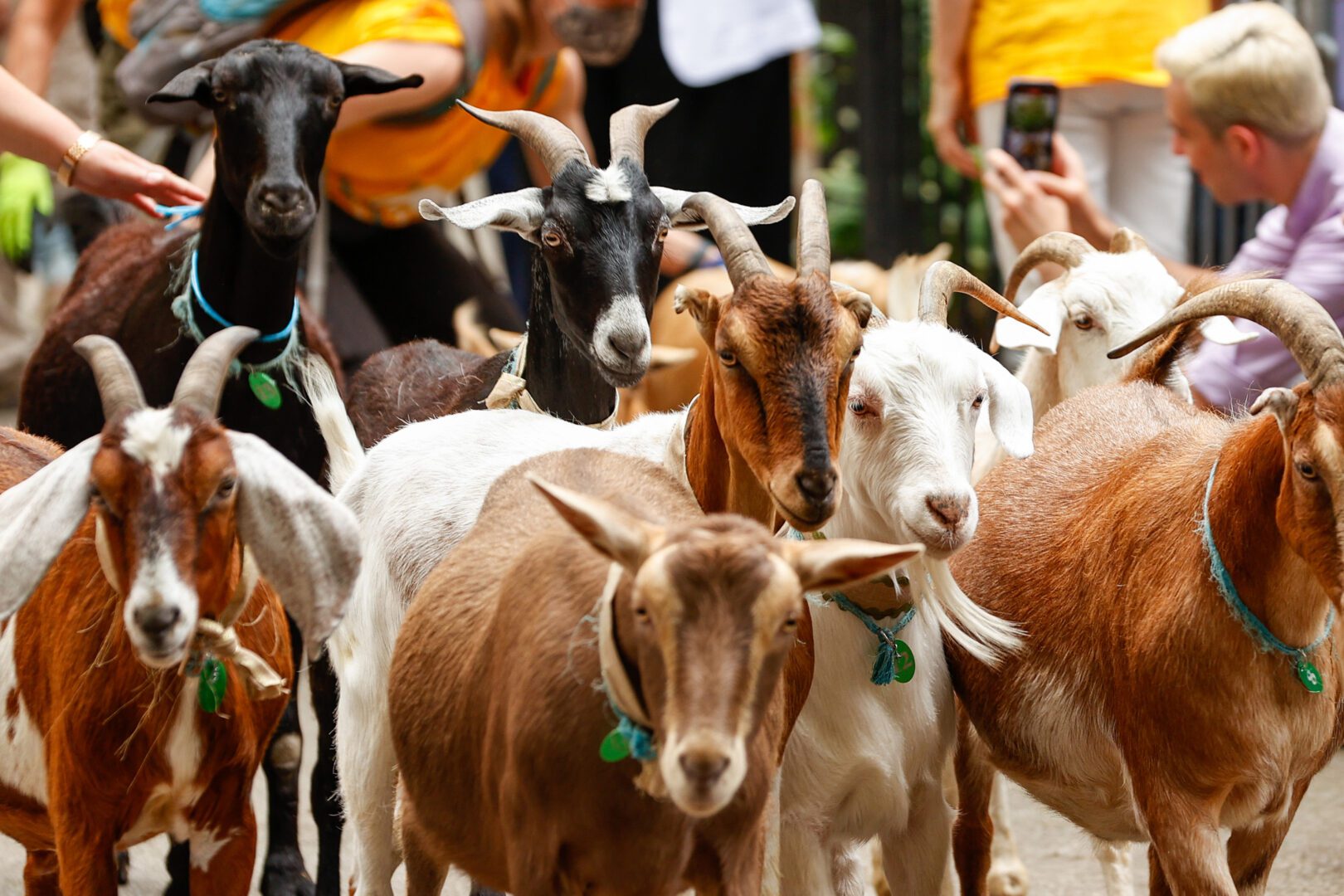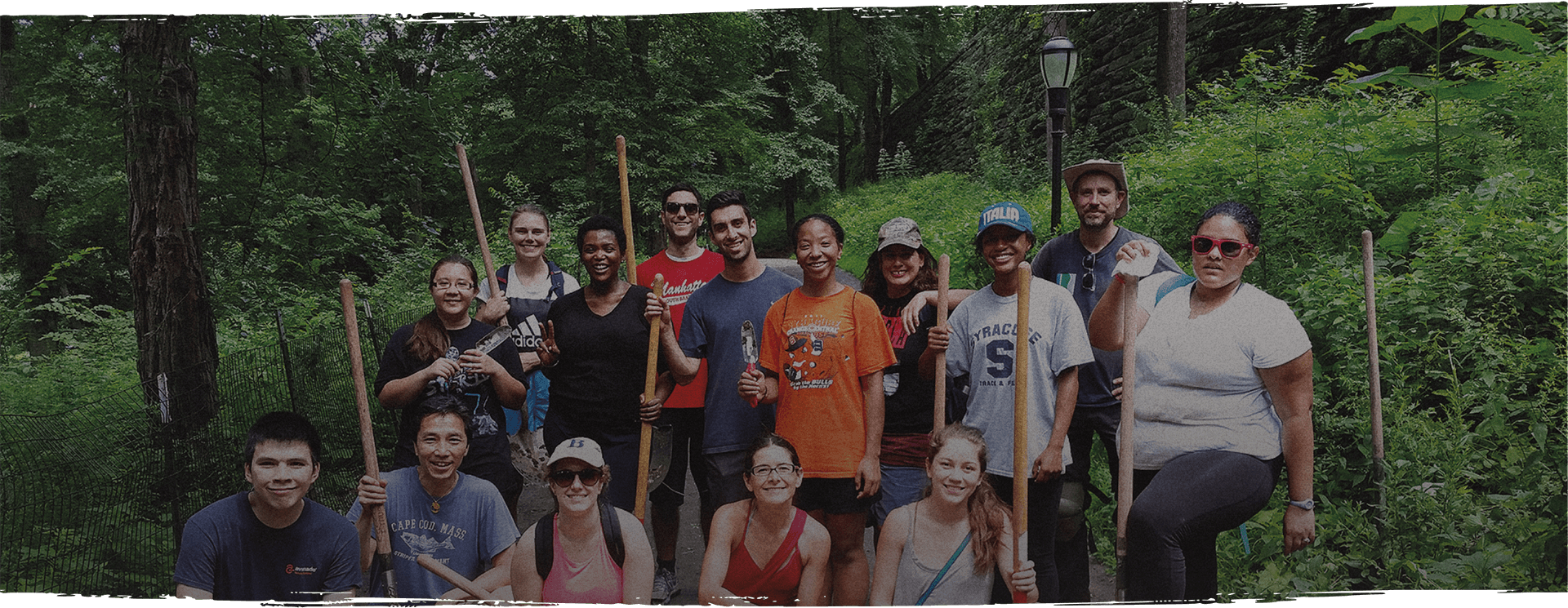Mallomar is your GOAT of 2023!
With 1686 votes, Mallomar swept the competition to be crowned the GOAT of 2023. New arrival India won the vote for the newcomer goats, who joined the herd midseason.
Full Results:
THE “OG” FOUR:
1st Place G.O.A.T.: Mallomar – 1686 votes (46%)
2nd Place: Chico – 1165 votes (32%)
3rd Place: Charlie – 510 votes (14%)
4th Place: Cowgirl – 282 votes (8%)
THE NEWCOMERS:
1st Place G.O.A.T.: India – 1216 votes (55%)
2nd Place: Templeton – 844 votes (38%)
3rd Place: Lemon – 144 votes (7%)
Thank you for a great 2023 Goatham season!
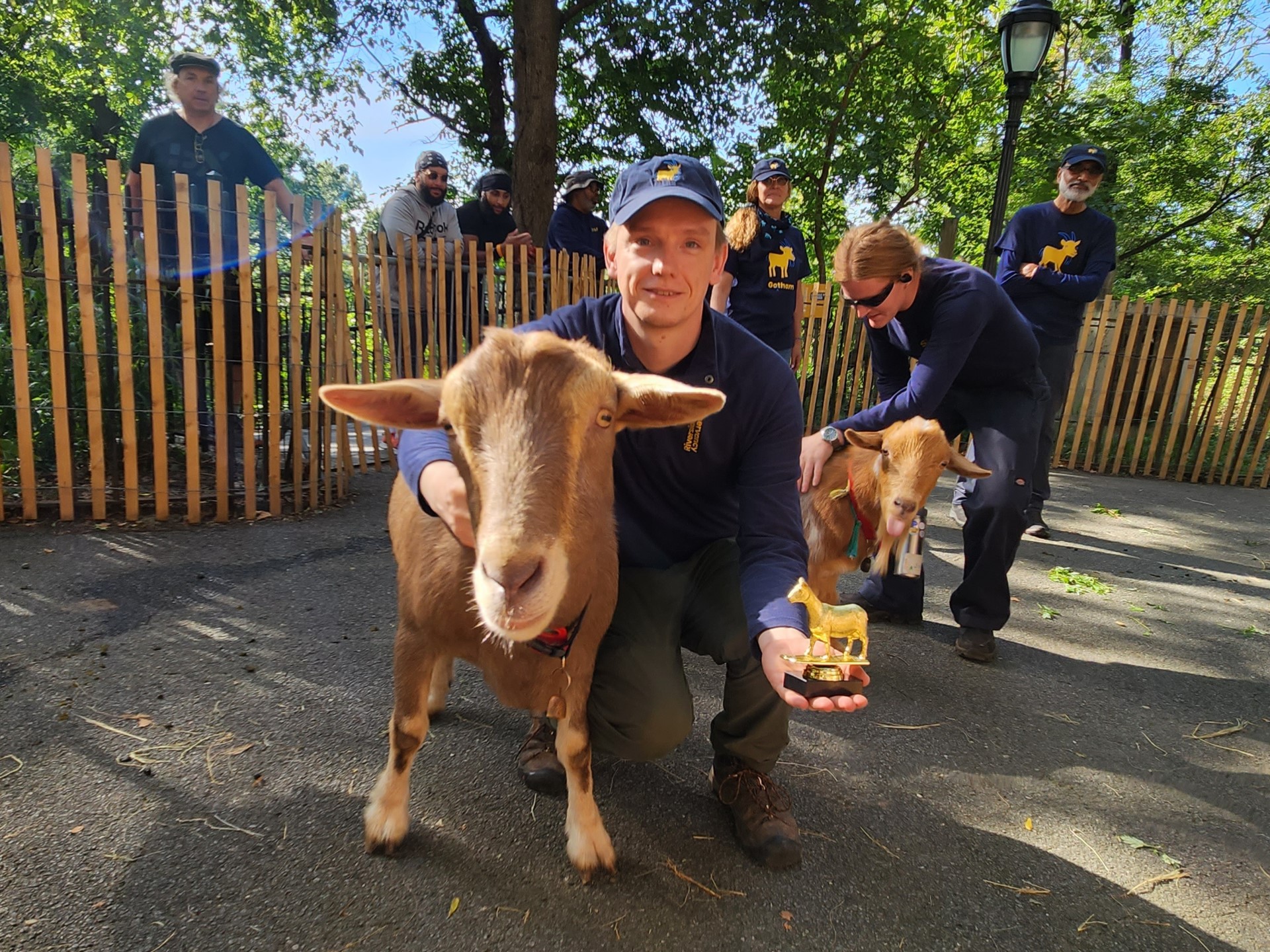
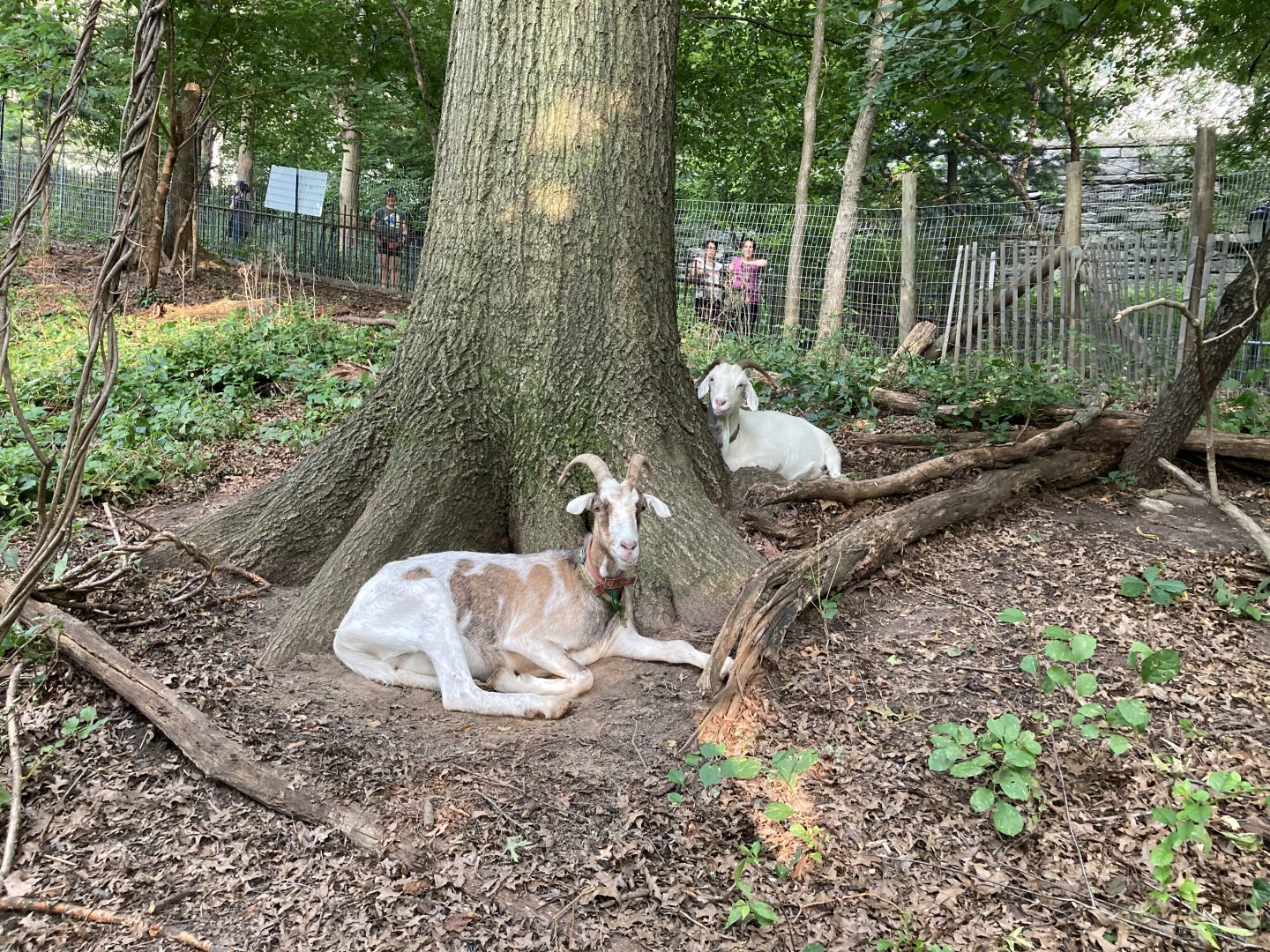
Why Goats?
As part of our Woodland Restoration Initiative, Riverside Park Conservancy has spent countless hours of volunteer and staff time over the last 15 years to control invasive species in our Bird Sanctuary. Substantial progress has been made from 116th to 119th Streets, and along the West Side Highway north of the 119th Street Tennis Courts.
Unfortunately, it has been difficult to make progress in areas with steep slopes. Some of the species of plants that have proven most difficult to control are Porcelain Berry, English Ivy, Mugwort, Multiflora Rose and Poison Ivy, among several other species. These plants and vines have dominated two acres of the degraded woodland that we are working to improve.
Riverside Park’s goats are like a herd of full-time professional weeding staff. They are able to traverse difficult, hard-to-reach places, and can also gulp down poison ivy without a second thought. This frees up human hands — and significant portions of time — to work on other components of restoration.
Goats and their giant appetites have been widely used by farmers, and recently, by nearby parks to assist in controlling and suppressing the growth of these detrimental invasive plants. Not only to goats eat almost constantly — they can consume 25% of their own body weight in vegetation in just one day — but their fecal matter adds nutrients to the soil as they go. It’s an all around win — a sustainable, chemical-free method of removing invasive species from a landscape.
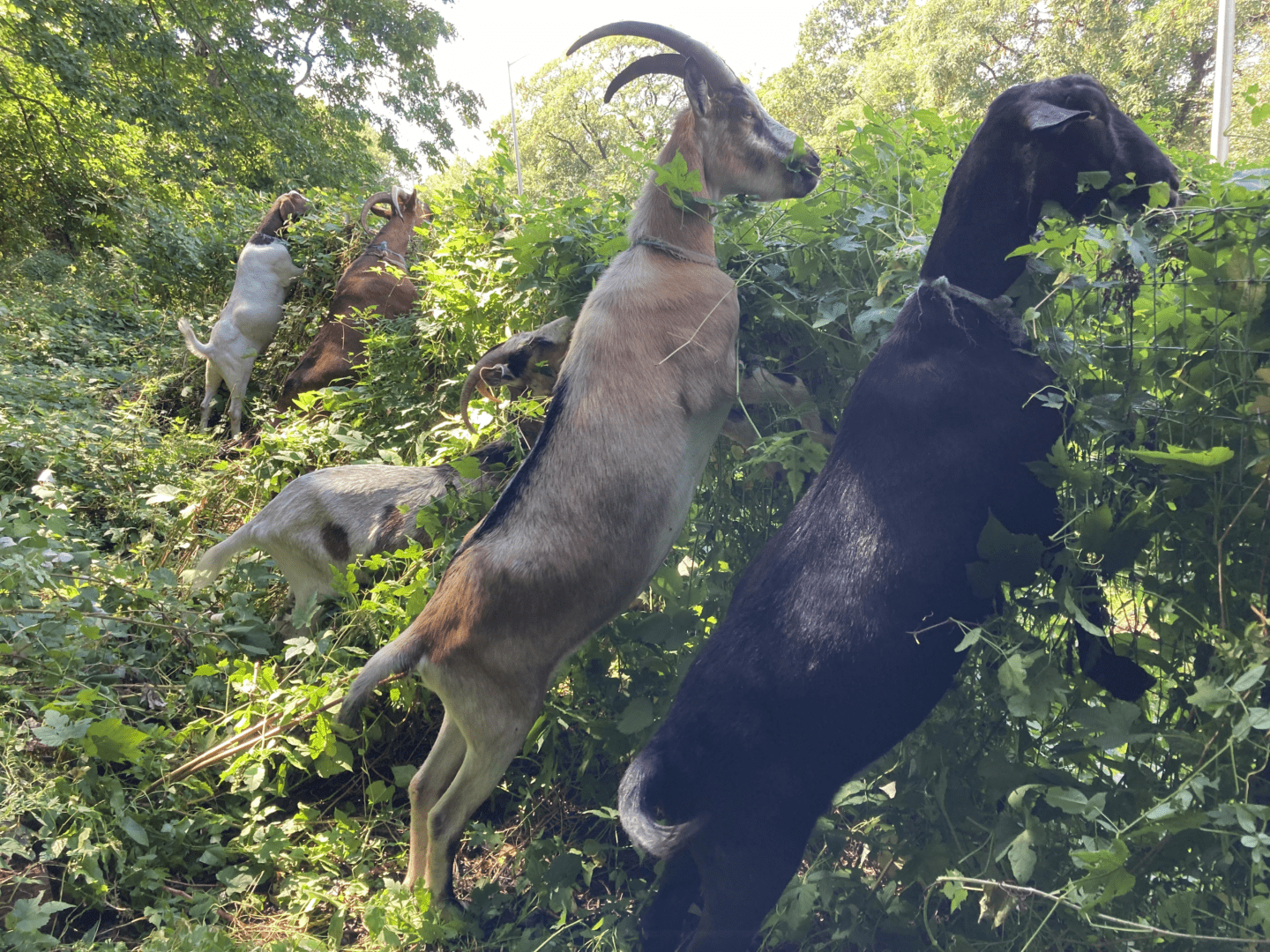
The Process
We have hosted goats for four summer seasons – in 2019, 2021, 2022, and 2023.
The goats roam a two-acre area — within a fenced enclosure — located between approximately 119th to 122nd Streets, feasting all the while.
Throughout the season, the goats continuously consume the weeds all the way down to the roots, which stunts the plants’ normal growth trajectory by making them start all over — only to be eaten again. After a few seasons of eating, the plants’ ability to grow will have been weakened, and perhaps eliminated altogether.
Please contact us for ways to get involved.
BEFORE/AFTER


